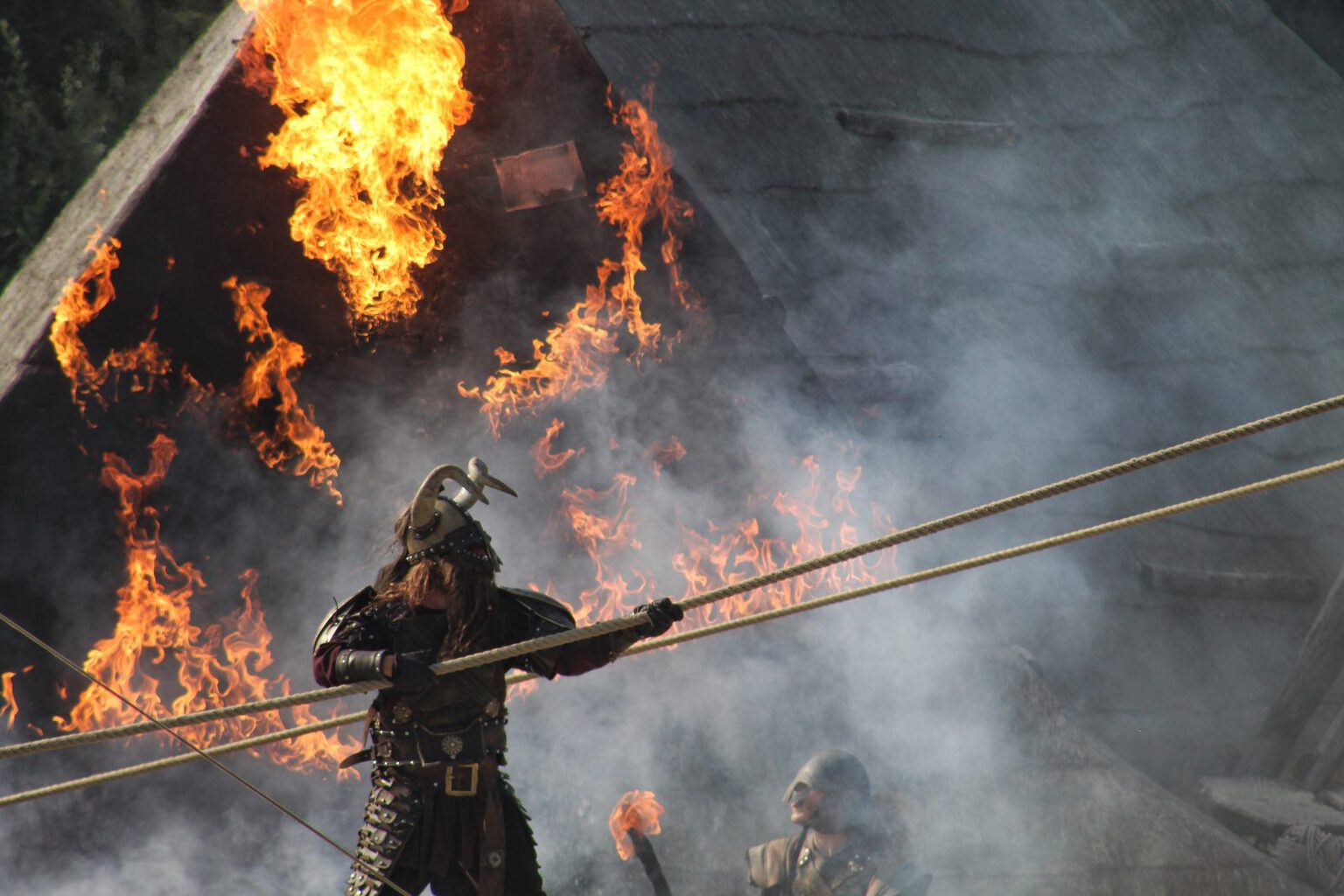Before Christianity, Vikings had a different belief system based on Norse mythology, wherein dying in battle is considered the most honorable way to pass into the afterlife. Norse gods like Odin, Frey, Loki, and Thor play an important role in this belief. Here’s all you need to know about the significance of Norse Gods during the Viking era.
Vikings Believe That Norse Gods Help in the Battle
Vikings have a strong belief that Norse gods help in the battle. For instance, Modi helps a warrior gain the right mood for a fight. That’s why Vikings would always pray to Modi for intervention. Vikings also believe that Modi can help soldiers enter a trance state to conquer and defeat enemies.
Here are the famous Norse gods:
- Ymir: First being or Norse god created through the ice of Niflheim, which is combined with the heat produced by Muspelheim before the earth came to life.
- Thor: The god of strength and protects the Vikings from danger. Thor, the son of Odin and Fjörgyn, is the god of thunder who has a high status in ancient and medieval Germanic society.
- Ullr: Vikings seek Ullr god of sports as well as god of skiing and hunting.
Modi: God of battle. - Odin: An enigmatic Norse god and leaders of the gods, Odin was associated with different aspects, such as wisdom, royalty, healing, death, and sorcery.
- Balder: The younger son of Odin and half-brother of Thor, Balder is the god of purity and light. Balder is wise, fair, and gracious.
- Freya: The goddess of beauty, love, and war, looking after the families of those soldiers on the battlefield.
Vikings Fight and Walk into Battle Without Fear
The Vikings firmly believed that dying as a warrior is the best way to depart from this world. Warriors who die in the battle will be rewarded by the Norse gods and will take part in Ragnarok or end of the world.
Here are the beliefs of Vikings when it comes to the afterlife:
- The place of despair and punishment is Hel’s realm.
- Valhalla is a popular place Vikings want to go after death, which is a hall of the Norse god Odin, wherein a big banquet is seen reserved for the strong and the fearless.
- Vikings believed that the leader of the Norse gods, Odin, made humans, the earth, and all living creatures.
- Vikings are known as marathon athletes, soldiers, and fighters.
Vikings Spend So Much Time on Funerals and Burials
Because of the beliefs of Vikings, so much time is devoted to funerals and burials to ensure that family, friends, or comrades will have a successful afterlife.
Vikings Pray to Norse Gods for a Good Harvest
Vikings would pray to the goddess of crop and field, Sif, for good fortune. It is believed that Sif grants a good harvest for farmers who ask for help for healthy crops all year round. Another famous Norse god is Freyr, who is the god of harvest, wealth, vegetation, and peace. Freyr was more popular than Sif among farmers and is considered an important Norse god in Viking society.
Vikings Respect Religion
Most people in Scandinavia were pagans at the start of the Viking Age. However, Vikings believed in many gods, so there’s no problem accepting the Christian god. Most scholars believe that Viking attacks on churches and monasteries had nothing to do with religion. These structures are poorly defended with a higher risk of plunder.
Here are the religious advantages of Norse mythology to the Viking era:
- Scandinavia gradually changed or transformed to convert pagans to Christians.
- There were similarities in Christian and Norse beliefs, like the crucifixion of Christ and Odin, who sacrificed himself by being pierced with a spear and hung on a tree.
- Like the Apocalypse or Revelation in the Bible, Vikings also believe in the end of the world or Ragnarok.
Vikings Became Well-Known As Fearless and True Warriors
Most soldiers in the Viking era wore a small hammer during battles around the neck for good luck. Because of the fearless and robust image of Vikings, many people claim to have descended from Thor during the Viking era. Vikings usually wore symbols of Norse gods, like a pin in Odin’s ax shape, which was found in the Norse settlement in Shetland.
Conclusion
Norse gods have made a strong impact in Norse mythology and among Vikings, not just on the belief system of the people, but also their way of life, battles, and the future of Viking society. By praying and believing in Norse gods, Vikings are known to be strong and fearless.


